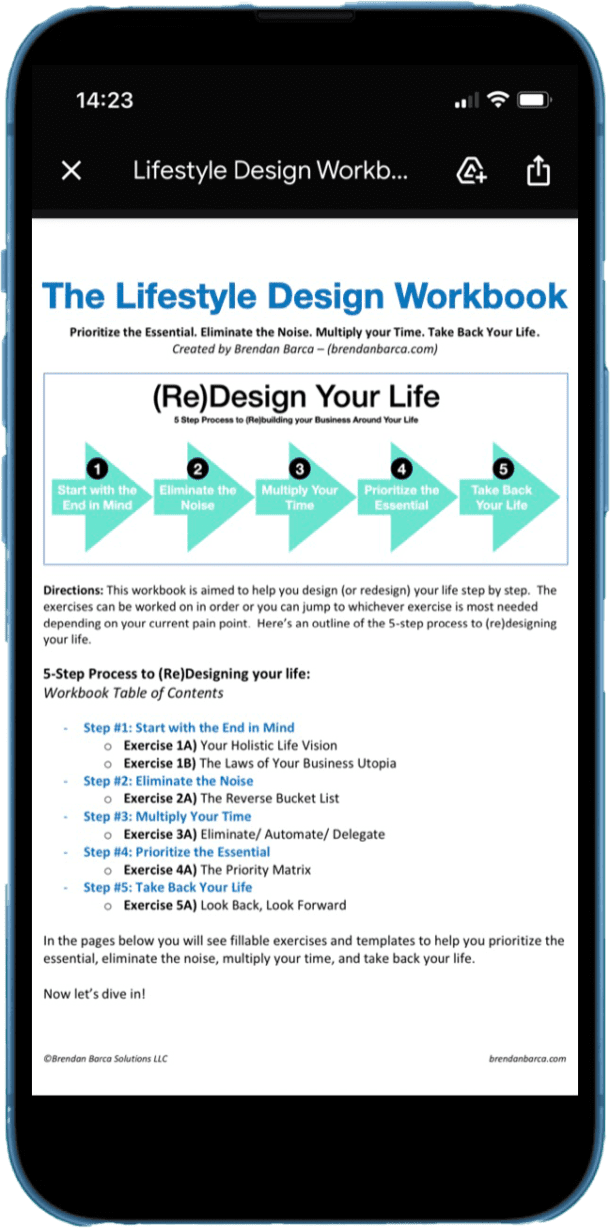
What if you don’t have to trade hours at work for a potential promotion? What if there is another way to get the results you want without sacrificing your precious time?
One of the biggest career mistakes you can make is believing that hours at the office will correlate directly to advancement in your career. Staying late at the office might earn you some brownie points but when it comes to going for a promotion there are many other factors at play.
It’s time to rethink how you approach getting promoted at your company. Whether you’re in sales, marketing, or engineering, there are certain metrics your manager expects you to hit. Your job is not to work as many hours as humanly possible. Your job is to exceed your metrics in the most efficient way.
It’s your impact at the company that will be remembered when it comes time for the promotion, not your hours worked. So, the question you should be asking yourself is: how can I create the biggest impact possible in the most efficient way?
Here’s a story to help explain this point:
Nathaniel Couldn’t Get Promoted
Nathaniel had been working in the financial services world for five years and was successfully moving up the ladder. He had received two promotions in that time and attributed his hard work ethic to his rise. Every day he got to the office before 8:00 AM and he wouldn’t leave until 7:00 PM.
People definitely took note of this. Nathaniel would get teased by his co-workers for always getting in first. And his manager always patted him on the back for it. He would even sometimes see the CEO on the elevator on the early morning ride up! He quickly became known as a hard worker and someone who was dedicated to the company. And this was certainly true.
But in his fifth year at the company, Nathaniel began to hit a plateau. He wanted to move from sales to management but didn’t know how to make this happen. He interviewed for an opening in the fall but got passed up on it. He continued to get in early and leave late but was starting to get worn down by his demanding routine.
In the spring of that year, he got passed up on a second manager role and this time wanted answers. He met up with the Senior Director and inquired about why he didn’t get the job. The director told him that his hard work and dedication was clear. But, he feared that Nathaniel hadn’t acquired the necessary skills to be a manager. He listed off a bunch of skills that the other candidate had acquired that made her more fit for the manager role.
Nathaniel came out of the discussion disheartened and confused. He felt he was a harder worker than the woman who got promoted. How could the company not reward him for that?
However, as the news slowly sunk in and Nathaniel reflected on the Senior Director’s advice, he began to see his mistake. He had thought that by being a dedicated worker he would always be able to get to the next level. After all, it had worked for his first two promotions. But Nathaniel realized that he needed to think much more strategically about this next jump. It would not be the time he worked that got him the manager role, but the specific skills he acquired and the impact he had on the team.
Simply put, what got him here couldn’t get him there.
From that point forward, Nathaniel trimmed back on his work hours and doubled down on the types of initiatives the Senior Director had told him to take on. He started leading team meetings, presenting new ideas, getting coffee with other managers. He stopped relying on his reputation as a hard worker and started learning the manager role and creating a visible impact on the sales team.
Within a year, Nathaniel got promoted to manager and worked 10% less in the process.
What Got You Here Won’t Get You There
We all have a little bit of Nathaniel in us. We’ve been taught our whole lives that hard work will get us to where we want to be. And while hard work is a big part of the equation, it’s not everything. In fact, hard work for the sake of hard work can create burnout and inhibit your work/ life balance.
What we need to do is, not stop working hard but, ensure that we’re working hard in the right direction. How can we double our impact in the same amount of time we normally work? Or how can we create the same impact in half the amount of time?
Our goal should not be to work 8 hours per day, but rather hit our daily goals as efficiently as possible. If you have to make 30 phone calls, can you do them in four hours? If you have to write a blog post, can you do it in two hours rather than eight?
By working towards output goals, and not time goals, you will be able to create the impact your company wants and get the promotion you desire all while creating more time in your life. Remember to ask yourself on a daily basis: how can I create the biggest impact possible in the most efficient way?

